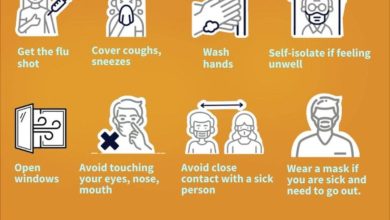‘I had no idea being a social drinker would damage my liver by 31’

Health
Liver disease often progresses silently, with many noticing symptoms only when it’s too late. Hazel’s symptoms, including fatigue, led to a diagnosis of fibrosis—a condition that can progress to cirrhosis or even liver cancer if left unchecked.
At just 31 years old, BBC journalist Hazel Martin revealed she was told by doctors if she didn’t stop drinking alcohol, she could die.
Hazel had severe liver fibrosis, which was shocking because “I didn’t drink every day, I never drank alone and I drank because I enjoyed it as a social activity, not because I felt alcohol-dependent”.
Doctors warn that liver disease, especially from alcohol consumption, is not something that only affects binge consumers and older persons – everyone is at risk, especially in this age of dietary exposure to aflatoxin that wreak havoc in the largest solid organ in the human body.
The liver helps remove toxins from the body’s blood supply, maintains healthy blood sugar levels, regulates blood clotting, and performs hundreds of other vital functions.
Similar patterns to BBC’s Havel have emerged in Uganda, where experts warn of the growing toll alcohol takes on health, particularly the liver.
Dr Dorothy Ajiambo, head of the Hepatitis Clinic at Mbarara Regional Referral Hospital, cautions: “Alcohol is not good for liver cells; it damages them. The liver is the major organ of the digestive system, and anything that damages liver cells impinges on the digestion of a person’s food.”
Liver disease often progresses silently, with many noticing symptoms only when it’s too late. Hazel’s symptoms, including fatigue, led to a diagnosis of fibrosis—a condition that can progress to cirrhosis or even liver cancer if left unchecked.
Dr Ajiambo emphasizes, “When someone’s liver is affected by alcohol, their food absorption is reduced because the liver doesn’t digest food properly. This leads to malnutrition or, worse, a condition called hepatic steatosis (fatty liver). If alcohol consumption continues, the liver may fail entirely.”
Dr Rachna Pande, a specialist in internal medicine, explains the dangers of prolonged alcohol use:
“Drinking alcohol regularly leads to a buildup of fats in the liver (fatty liver). Continuous drinking can cause liver cell swelling (hepatitis), which is reversible if drinking stops.
“However, if further alcohol intake continues, the liver cells collapse and cannot regenerate, leading to hepatic cirrhosis.”
The Rwanda-based internist said there is no fixed ‘safe’ quantity or duration of drinking.
“The onset and extent of damage depend on genetic factors, age, and gender. Women and small-bodied individuals are more vulnerablem,” she said.
In Uganda, misconceptions about symptoms often delay diagnosis. Dr Ajiambo notes that common signs—such as loss of appetite, yellowing of the eyes, abdominal pain, vomiting blood, and spontaneous bleeding—are caused by alcohol’s effects on the liver but are frequently misunderstood.
“Abdominal pain is often mistaken for ulcers, and itchy skin is attributed to allergies, leading to improper medication that further strains the liver. Every drug we take is processed by the liver, and excessive drug use worsens its condition,” she explains.
This cycle exacerbates the issue, with some even attributing swollen bellies caused by liver disease to witchcraft and resorting to harmful herbal remedies.
Hazel’s experience underscores the importance of early detection and intervention. After quitting alcohol, her liver health improved dramatically within months.
“Several months after my diagnosis, I went back for a repeat FibroScan to see if there had been any improvement.
I was relieved to see that my FibroScan reading had gone from 10.2 to 4.7—back in the normal and healthy range.
I was surprised at what a dramatic difference cutting out alcohol had made in such a short space of time.
I don’t plan on drinking again—I’ve been advised not to.
I haven’t touched a drop for nearly a year and feel much better for it—but I still mourn it in a way I can’t quite put my finger on,” Hazel shared.
Dr Pande reinforces this hopeful message: “Fatty liver is reversible over weeks to months if one stops drinking alcohol.”
However, Dr Ajiambo warns that for many in Uganda, liver disease often progresses to advanced stages due to a lack of awareness and late medical intervention.
Addressing these misconceptions and promoting responsible drinking could save lives, as alcohol-related complications remain a growing concern worldwide.




